“It was as if my father had given me, by way of temperament, an impossibly wild, dark, and unbroken horse. It was a horse without a name, and a horse with no experience of a bit between its teeth.” We talk about heritage. Our roots. We’re proud of it. We get tattoos. We give our children cultural names. We hang flags of our origin in front of our homes. There is an entire website dedicated to tracing your ancestry. However, when it comes down to tracing the hereditary cause of mental illness in our own lives, we don’t, it seems we cross our fingers, start our families and pray our kids don’t end up like our “wacky” uncle Bob. At the age of twelve, I started treatment for my moods. I began seeing a psychiatrist in the city, the same one my two older siblings were seeing. Sometimes we’d all go together. We never talked about it. We wait our turn, go in, come out and that was it. In fact, our whole family at some point underwent treatment for some kind of mood disorder or addiction. We never talked about it. In fact, we still don’t. During a recent car ride with my parents, my father spoke of his cousin who had spent her entire life in a institution, this was the first time I had heard about it. My cousin was currently involuntary admitted to a hospital and was declared a ward of the state. As we drove further on the road, my parents began to disclose more cousins, uncles, siblings and even their parents who had been affected my a mental disorder in someway. Mapping it out in my head, it would be impossible to map out our family without a blank space. Families for Depression Awareness has a convenient tool to map out your own families history with mental health. Although it is limited with how many family members you can add, it is a helpful tool in visualizing your families history. It’s worth a visit http://familyaware.org/familytree/. I decided to finally map out my family’s genogram, going back to my grandparents. As you can see practically everyone in my family has been affected by some kind of mental disorder. Have you mapped out your family? If so, I would love to share your Genogram (tweet me @alifeWOstorms) — it’s hereditary — let’s acknowledge that. (Here is mine mapped out.) Bio
A life without storms is a 20-something blogger living with Bipolar. Here are my links to my social media. Medium: https://medium.com/@alifeWOstorms Twitter: https://twitter.com/alifeWOstorms Website: http://www.alifewithoutstorms.com/
0 Comments
It's been a while; I don't know how to feel about this or what I make about my absence from behind this pink laptop which is missing the letter p. I guess in a selfish manner it's been a good thing that I've not sat down and wrote about those feelings and emotions that haunted and controlled my mind for so long. In terms of the other people and the bigger picture it’s probably not been my kindest move therefore please accept my humble apologises, however I'm back and intend to try and help whoever and wherever I can.
So why the return? If you've followed my journey from the start of my dark days, which I like to refer to as my meltdown, you'll know how far I've came from where I was and how well I am doing or some day’s appear to be doing. If this is your first time reading my blogs you will be able to catch up on my journey from my wordpress account or my twitter account, I'm not going to lie you'd be better catching up on the walking dead or criminal minds box set so to save you a bit of reading I shall give you a little insight. I suffered or still suffer from a condition called PTSD. My world was filled with illogical and irrational thinking, fears, self doubt, depression, the need for safety and an abundance of self doubt and a lack of self worth. The world was a scary and horrible place for me, I cut myself off and slowly allowed the depression and anxieties to convince me life was going to be a like this forever, a constant battle, a cycle of anxious and depressive thoughts, eventually I sought help and thankfully met my amazing psychologist Laura. Laura diagnosed the PTSD and then we began my treatment which consisted of Cognitive behavioural therapy sessions and me facing up to my fears and approaching head on the situations I was avoiding. Two and a half years later I'm here and I'm still doing well, I'm mentally stronger, I've not suffered a period of bad depression since the end of my treatment and I do not look back with regrets or look forward to the future with the same sense of apprehension as I did previous to my treatments. I do however have periods of anxiety, it’s nowhere near as often or as continuous as it was when I was at my worst but I'd say it's crippling when it takes a hold. This is the reasoning behind this blog, a friend asked me to describe how my anxiety feels and what happens when it does get a hold of me and could I write a blog about it. I've had a couple of efforts previous to this one trying to write a blog solely about anxiety and failed. I think this is because it was always the depression that affected me the most, the depression was my greater enemy, the anxiety was fed from the depression or from the memories of the actual event that led to me suffering from PTSD, now I'm in a different place mentally and not suffering from the depression I am slowly learning and realising the affect that anxiety is having on me both mentally and physically. So how would I describe my anxiety, it's hard, it's the most illogical thing you can imagine but also it's the most controlling thing you can imagine. I think because I underwent my treatment and learned skills how to cope with anxious thoughts, like asking myself the following, "how will this affect me in five years time?" "What is the worst that can happen?" "What are the chances of it actually happening?" I can recognise it is happening more than I could before I underwent my treatment but at times you still feel it taking control of your mind. An overwhelming feeling of dread, panic and fear, I feel my heart racing, I can feel my breathing speeding up, and I can't get the anxious or illogical voice to stop. It's so hard to explain. What makes it harder for me to grasp or comprehend now is that my fears are more illogical now than they were when I suffering from the PTSD. When I had the PTSD my fears were focused on being safe, avoiding pubs, being on the street at night, I should probably explain here that I got attacked outside a pub and it was at night, like I say it's all in my other blogs, so I can understand why I had those fears, now my fears are focused around my health and getting ill. I'm not simply talking about catching a cold and it escalating to Man flu, I mean when I get Ill I imagine the worst case scenario. It's so illogical you wouldn't believe it. I've took 3 HIV tests this year even though I've not even put myself in a position where I'm at risk, unsurprisingly they were all clear. If I get a rash, I'm googling my symptoms to see what is up with me, it's never the most common illness I have either, it's always the worst case scenario. I know this is common and it's labeled as Health Anxiety so I'm slowly accepting it and not beating myself up about it but I've used this to highlight what I mean about anxiety, it's so illogical yet so powerful. Crippling is the best term to describe. Sometimes my anxieties cripple me for a bit, I spend a week or so in a state of apprehension, I'm vigilant, agitated, and grumpy. I recognise it though and try to deal with it. I've found friends I can talk to about it and I do. I don't get it that often now but when I do it's horrendous however I know it's a temporary setback. I focus my thoughts and look back to where I was and where I am now. I'm nearly half way through an undergraduate psychology degree, I've got a job supporting adults with learning difficulties and disabilities, I do my voluntary role with victim support where I help support victims of crimes, I can see the difference I make to peoples life's. I'm able to spend time with my mates and go places I could only dream of when I was at my worst and all of this pulls me through. I’ve had issues with Anxiety and Mental Health disorders for as long as I can remember. When I was aged 8 I was diagnosed with Obsessive Compulsive Disorder (something I’ll write about in the future), which I believe stemmed from a severe phobia of being sick (emetophobia). My OCD has manifested itself in all sorts of different ways (it’s not all about cleaning and washing your hands, you know!), especially over the last 2 years.
Today, what I’d like to write about is my experience with Generalised Anxiety Disorder. A condition I was diagnosed as suffering from; back in January 2015. Throughout the second half of this year, I’ve been upfront and honest about my mental health issues. I’ve previously written about how I suffered from Post Natal Depression & Anxiety following the birth of my son in 2013. I’d like to continue to be open and honest about how my mental health affects my day to day life. In many ways it’s cathartic to write about but also I’m very much of the opinion, the more we talk about mental health, the more we can break down the stigma that still seems to be ever present even in this day and age. So, Generalised Anxiety Disorder….what is it? Generalised Anxiety Disorder (GAD) can be defined as a disorder in which the sufferer feels in a constant state of high anxiety and is often known as ‘chronic worrying’ or a ‘free floating’ anxiety condition. (credit: Anxiety UK) As I mentioned, I’ve always suffered from varying degrees of anxiety throughout my life. I’ve ALWAYS been a worrier, despite my confident exterior, on the inside there has always been a battle of wills going on. Desperately trying not to let my worries overcome me, whilst also in some strange way, ensuring I pay enough attention to the worries circling my mind so that I don’t ‘get caught out’. What do I mean by that? Let’s dissect the last sentence a little. If I didn’t have something to worry about, to fret over, to even obsess over (enter the OCD), I would worry about that. I would almost worry that if I was feeling good and worry free, that something would come along and bite me on the backside when I least expected it. I would feel like I couldn’t relax, I couldn’t live in the here and the now, for fear of what might be lurking round the corner. So, what would I worry about? What was so frightening that it was having this effect on me? Anything. Absolutely anything is the answer to that question. It could be something so small and minor as worrying that I might get a cold and have to cancel a night out I had arranged (this was more pre-Motherhood). I would literally be panic stricken that I might develop a minor illness that would render me unable to stick to plans I had made. Looking back, it sounds ridiculous, surely it would be seen as one of those things. I’d got a cold, it’s an inconvenience but I’ll just rearrange the night out and ride the minor irritation out until I’m better. But no, I couldn’t do that. I would begin to catastrophize, if I got a cold, I wouldn’t be able to go to work perhaps; therefore I might get the sack. I wouldn’t be able to go on my night out; my friends might fall out with me. This is just one example of a worry. Another example would be the irrepressible fear that I had said something offensive to someone. The mind is an incredibly powerful thing, this is something I have learnt especially over the last year or 2. It is capable of pretty much anything. So, imagine I’m on a night out, the drinks are flowing, I’m having a great time. Life is good. I wake up the next morning, perhaps with a hangover and suddenly I’m struck with fear. I’m talking overwhelming, sweaty palm, dry mouth fear. I’m worried I said something to a friend/acquaintance that I shouldn’t have. Cue a cycle of worrying that is very difficult to break. I’ve said it, I’ve definitely said something to someone (even if deep down I’m sure I haven’t). They’re going to hate me, that person will never speak to me again. Heck, they’re going to tell everyone they know what I’ve said and no one will ever speak to me again. I’m going to be hated, ostracised, this is going to be the worst thing ever. This is what is going round in my head, and when I say it’s a cycle that is near on impossible to break, I mean it. I can think of nothing else, and if for a second I do forget what I’m worrying about, I soon remember and the fear becomes all the more overwhelming once again. This is the cycle I used to find myself in every single day. The 2 examples above are just 2 examples of many different scenarios I have found myself in on a regular basis. Generalised Anxiety Disorder is scary. It can make your fears and your worries seem real. At its worst, it has left me feeling irritable, tense and exhausted. Exhausted from the incessant worrying, exhausted from the constant ‘what if’s?’ circling my brain. What if I get food poisoning from this plate of food? What if I don’t make this bottle up properly and make my baby poorly? What if I’ve upset someone and they will never talk to me again? I simply did not have the tools nor the strength to get a hold of this irrational worrying. This in part, is what led to me reaching my lowest point at the very beginning of this year. I was at my lowest ebb. Now, things are different. Yeah, I still worry, no amount of medication, therapy or counselling will change that. However, it doesn’t overwhelm me like it used to. I’ve taught myself to gain perspective, to ride the worries out. I think to myself ‘what is the worst that can happen?’ or ‘will you still be worrying about this, this time next week?’. Nowadays, I take each hour as it comes, I don’t fret so much about the future, or worry about what I did or didn’t do in my past. I’ve learnt to use the rational side of my brain more and ignore the irrational thoughts and worries. Some useful resources if you feel you would like to learn more about Anxiety. https://www.anxietyuk.org.uk/ http://www.mind.org.uk/ http://bemindful.co.uk/ Rachel Hawkins Connect with Rachel Rachel's Blog: http://www.ourrachblogs.com Twitter: @Our_Rach Facebook: www.facebook.com/ourrachblogs Unless you have been on a beach somewhere, disconnected from all sources of media, you will be aware of the horrifying acts of terrorism that befell the people and city of Paris on November 13th, 2015. In the days since the horror, you have possibly watched news reports, read articles and possibly a variety of other media going over the gory details of the attack itself. You may find yourself discussing the life and motivation of the terrorists themselves, and reading stories from the survivors and loved ones of the victims. You have probably watched, thought, talked and listened, not because you have a desire to immerse yourself in sad and sordid details, but because you care. You care deeply. You may even have been directly affected by the tragedy, and please accept our deepest sympathies and condolences if this is so. For those of us affected 'at a distance' - by that we mean we do not have loved ones directly affected by or involved in this current tragedy - we usually assume that we are 'unaffected'. However, what if we asked you how you have been feeling since Friday, November 13th? Have you been sleeping soundly? Have you been flipping between feelings of sadness and rage? What about feeling helpless? Or hopeless? Hypervigilent or on-edge? What about feeling fear? Are you afraid? What if we were to tell you that all of the feelings above are normal, so normal they have a name: Vicarious Trauma or Secondary Traumatic Stress? Although these terms are usually reserved for the type of emotional trauma that can affect helping professionals, we feel it is appropriate here. And there is research that supports feeling all of the things suggested above as a result of (only) seeing or reading about these terror attacks on television or read about them online or in news print. Even if they are a country or a continent away. "Witnessing trauma (whether being physically present or through exposure to images in the media) can result in trauma reactions, which are normal reactions to abnormal events." (You may wish to read more on science and terrorism HERE.) How Can I Cope? 1. Notice your feelings In the aftermath of a traumatic event, it is important to notice and acknowledge your feelings. Allow all of your feelings (they may change quickly, and may even surprise you!). It is not unusual to flip quickly from feelings of deep sadness to extreme outrage or passionate anger. And it is also good to know that some of these feelings are the surface reactions, where underneath our anger there lies a sense of grief, helplessness or even fear. Notice all levels of your feelings. They are normal, and they need to be processed and released in healthy ways. 2. Take action In order to process confusing emotions, it is important to take action. Many mistake this inner feeling of urgency to mean they need to lash out, point fingers, scream and yell. While a little screaming and yelling into a pillow in the privacy of your own home is not always a bad thing, channelling your upset and feelings into positive action is important for your health. Positive and healthy options for action include:
3. Assess your Situation Many people become almost paralyzed by the fear of 'what if...'. The reason that terror attacks are aptly named 'terrorism' is because of the psychological impact they have on people. The fear these acts install are aimed at creating a sense of unease, of not being safe. While the reality is that these acts are often unlikely to happen in our own neighborhood, we are gripped by an almost overwhelming fear. And this fear will whisper to us that it is not only possible, but likely. That is what fear (and anxiety) has at it's core - the ability to amplify in our minds the remotely 'possible' to the absolutely 'will'. And that is why it is even more important to be mindful, to be present. To take time to breathe. Meditate. Be mindful. "That is what fear (and anxiety) has at it's core - the ability to amplify in our minds the remotely possible to the absolutely will." Take note of all of the security measures in place in your home, your community, your country. Remind yourself that you are doing all you can to be safe, without restricting your life in unnecessary ways (assuming you are not currently in a location that is, in fact, under attack). Remember how often you have coped after difficult or traumatic events in your own life. You can do this! 4. Be mindful. Breathe. Take time to rest. To clear your mind. Keep your routines going - continue doing what you typically do. Traumatic events take a toll on all of us. Be mindful that trauma is cumulative: if you have suffered trauma in the past, current trauma may serve to trigger and/or amplify your current feelings and sense of unease. As always, talk it out. Keep connected. Reach out to others to talk and listen. And if you feel that your feelings of fear, sadness or agitation are not subsiding with some time, please, please seek out professional help. Licensed therapists and counsellors are trained to help you work through these complex feelings. Be kind to yourself! Much love and peace, Tanya & Sally xoxo That's it. You have started the process of beating your mental illness. You have found a Doctor. You have found meds, therapy, peace, or a combination all of the above and you think you are ready to get back into the real world. Now What? One of the hardest parts of recovery is getting back out socially. You really just have to be strong and make yourself do it. You have to be prepared to be anxious and nervous. If you are like me, you have to be ready to shake a little, stutter, or sweat the first few times. It makes it easier if family and friends are prepared that you have not been out in a while. It makes it much easier if they are supportive and assure you that you can just be yourself without judgment. Let them know it is okay to ask questions. Do not hide from the fact that you had, or have a mental illness. Own it, so it cannot own you. The first few times, or maybe the first 15 times may be difficult, however you will find that after some time you will get better at conversation and you will start to feel more comfortable around people. It definitely makes it easier to start going for coffee with 1 person. Coffee shops and juice bars are much less intimidating than a club, bar, or concert. You can go to a friend’s place and watch a movie or just talk. Then maybe try to go out to a movie or dinner with a good friend or family member. After a couple weeks, months, (or as long as you need) try and plan something that may take a half day or full day like a trip to go see a concert, sporting event, museum, or holiday shopping. While you are out grab a meal. Sit down. Soak it all in. You are out. You are being social again. You are already light years ahead of where you may have been a month ago. Congratulations on being patient. Patience is going to get you 1000x further than rushing. I promise you that. Get used to going places that are further away from home. Get used to talking to people that you do not know like a salesperson or waiter. Remember that these people are not judging you. They deal with hundreds of people a day. And trust me, a lot them are much worse than you. Remember to smile. Remember to breathe. Be calm, be polite, and usually you will get that back in return. If by chance they are a rude and obnoxious jerk? Let it go and laugh about it on the way out. Do not be rude or obnoxious in return. Do not make a scene. You have already won by keeping your cool. Do not let someone else ruin your day. No one should get the best of you. If you are feeling ambitious and would like to expedite the process, start keeping a journal of your experiences. You can keep notes about what things made you feel better and what you would like to change on your next trip out. You will be able to see your growth and maturity over time. Remember that everyone gets a little anxious, nervous, or lonely so do not let those feelings hold you back from living your life. There was a 3 year period where I felt glued to my home. I was scared to death to even go for a walk around the block. I did not go to holidays. I did not see anyone except a psychiatrist. If I could get back out I know that you can. I hope that these tips are the first steps in leading you back to family parties, high school reunions, vacations, or anywhere your heart desires. You can do it. I have faith in you. So please, have faith in yourself. Joseph S. Fusaro By TRACY SHAWN, MA (This article was first published in PsychCentral.com) For those of us who suffer from anxiety or depression, the holiday season can prove especially challenging. The juxtaposition of unhappy thoughts alongside the cheery Christmas music, nostalgic movies dripping with holiday sentimentality, and advertisements displaying jubilant people celebrating the season can make us feel even worse. The American Psychological Association lists financial concerns, unrealistic expectations, and the inability to be with certain family members and friends as contributing factors to holiday anxiety. Mix in the stressors of shopping, family reunions, travel, office parties, and dealing with houseguests, and no wonder this seasonal “cheer” can be a land mine. Below are five tips on how to navigate the holiday season when you are also dealing with ongoing anxiety and depression: 1. Acknowledge your feelings. According to the Mayo Clinic article on stress management, one of the first steps in dealing with holiday stress is to express your true feelings. If you need to, take time out to cry or share your feelings with a trusted family member or friend. Remember that you cannot force yourself to be happy just because it’s the holiday season. It’s okay to feel and express what is going on inside of you. 2. Keep your schedule sane. The Anxiety and Depression Association of America suggests that it’s a helpful idea not to overschedule during the holidays. Remember that you can control the seasonal overload instead of letting it control you. You do not have to attend every function, and when you do, it may help to arrive late and leave early. And if some traditions cause you more stress and unhappiness than joy, consider changing them or even letting them go altogether. 3. Maintain realistic expectations. Remember that no one has the perfect family, so toss out the unrealistic wishes and expectations that whatever family function you attend will be as pumpkin-pie sweet as that Hallmark movie you’ve just watched. Instead, realize that, yes, you will probably have to deal with some of the same old family dynamics that push your buttons. Remember that this isn’t the time to air past resentments. Stay calm, change the subject, and then steer clear. You can always wait to sort through your feelings over the phone with an understanding friend after you get home, or even to the blissfully nonjudgmental ear of your dog or cat. 4. Focus on healthy habits. Although the holiday season can throw us off schedule, it’s important to maintain healthy habits. Engaging in regular physical and mental wellness routines such as jogging, yoga, spiritual practices and long walks can calm one’s mind and provide a better prospective on what’s really important. Also, think twice about overindulging in alcohol. Overdrinking has been shown to exacerbate both depression and anxiety. 5. Create a comfort zone. This one is a personal favorite that I have practiced for many years. I have discovered that if I consciously plan a calming activity after a stressful social event, it helps me feel a lot less anxious both during and after that event. So, think about something soothing that you can look forward to immediately after coming back from social functions that may leave you feeling drained. It helps that much more to know that when your in-laws guilt-trip you about not visiting enough, you can picture yourself in just an hour or two lounging on your couch and watching a comedy or snuggling under the covers and reading a great book. Tracy Shawn 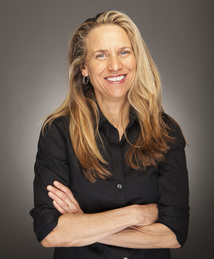 Tracy Shawn, M.A. lives and writes on the Central Coast of California. Her award-winning novel “The Grace of Crows” is about how an anxiety-ridden woman finds happiness through the most unexpected of ways—and characters. Dubbed a “stunning debut novel” by top 50 Hall of Fame reviewer, Grady Harp, The Grace of Crows has won the Jack Eadon Award for the Best Book in Contemporary Drama, Second Place for General Fiction for the Readers Choice Awards, and Runner-Up for 2014 General Fiction with the Great Northwest Book Festival. Nancy Davies lost her son to suicide and has been very open about sharing her journey after his death. Earlier this year she shared a guest post entitled 'The Weight Of The Ring' that she wanted to share in hopes that 'there’s the chance that it might help to save a young life.' Today Nancy shares a poem she wrote about teenage suicide. If you can relate to this moving poem, please share it with your social media friends. You never know if it could help someone who is struggling. Connect with Nancy on Twitter: @nancydavies55 PEACE OUT
(or Thoughts on a Teenage Suicide ) The darkness invades like a cold winter night. I dream that I’m flying straight into the light. But heaviness lingers, it settles in deep. Where I’m going tonight I won’t need any sleep. My body is tired; my mind aches to be freed. I lay on my bed and in silence I bleed. I can’t seem to shake this, whatever I do. The love that you give me can’t find its way through. I’ll be the wind in your face. I’ll be a gentle embrace. I’ll be your undying grace. Peace out. See I’ve lost all my faith and I’ve given up hope. These thoughts in my head leave me struggling to cope. I’m about to cheat destiny, change out my fate. Peace isn't coming; I fear it’s too late. I feel angels surround me in quiet desperation Hoping their presence secures a persuasion They tell me think twice for I must be mistaken I pray they’ll forgive me for this chance that I’m taking. I’ll be the wind in your face. I’ll be a gentle embrace. I’ll be your undying grace. Peace out. This post is motivated by the hundreds of anxiety blogs I have read over the past couple of years. I've read stories of great success, and stories that are so powerfully sad that I wanted to reach through the computer screen to give that person a hug. I’ve read stories about how therapy is a joke. I’ve seen countless blogs talking about the never-ending balancing act of taking medications for anxiety. The most depressing blogs focus on the fact that anxiety is a tremendous pain that will never go away. It’s depressing because that mentality is so incredibly untrue. I’ve spent the good part of a decade searching for anything that would help with my anxiety. I would place a heating pad on my chest because I thought it would help me breathe with greater ease. I would try to not sit for long periods of time because I thought I would develop a blood clot. I started drinking glass after glass of green tea, and I would watch my sodium intake. The Internet threw so many ideas into my head, so I tried them all. Quick note, if you are the type of person who looks up their symptoms online you need to stop. There is nothing but harm that can come from having a headache and then reading about medical symptoms that could make you believe that a headache is actually a brain tumor. I’ve looked up every sensation that my anxiety delivered, and I never felt at ease after those countless hours of meaningless research. For the past ten years, I've had anxiety. It has been called everything from panic attack disorder to generalized anxiety disorder. You can call it anything you’d like, but it doesn’t make a difference. All of those names for anxiety all boil down to the fact that I overreacted constantly to an emotion that all humans possess. I would take the most mundane thought and drag it out until I found myself shaking and hyperventilating. I’m sure many of you can relate to this. We can go insane from just about anything. It doesn’t have to be that way. Just because we have a greater sensitivity to anxiety does not mean it has to take over our lives. Without anxiety, we would drift through the world without concern for our own wellbeing. Anxiety is something I’m happy to have in my life because it tells me when I’m being an idiot, or when I’m doing something wrong. Here's the truth. Fighting your anxiety only intensifies the feelings. Constantly trying to push your anxiety away is a recipe for disaster. How can you beat something that has no chance of ever going away? Why fight scary feelings and sensations that YOU are responsible for creating? I know it seems like anxiety comes out of nowhere, but it doesn’t. A quick thought will pop into our heads, and we cannot just take it for a simple thought. We have to chase it down, intensify the fear, and then top it off with a panic attack. I am not a mental health professional, not even close. I cannot tell anyone to stop doing what they are doing for their anxiety. All I ask is that you take a good look at what you’ve been doing for your anxiety, and then ask yourself if your efforts have been worth it. Has breathing into a paper bag taken away your fear of not being able to breathe? Does taking medication give you the real freedom you have been searching for? Does keeping a journal of your experiences with anxiety make the things you have jotted down any more bearable? Is the purpose of your efforts to gain temporary relief or do you long for a permanent solution? Let the anxiety in. I know that sounds counterintuitive and scary, but giving the anxiety the attention it asks for only throws fuel on the fire. Let those scary thoughts and feelings swim around for a while. Take the fear away from the sensations, and the panic will slowly begin to disappear. Be prepared for a battle because anxiety has had the upper hand for a long time, and it is not prepared to go away without fighting back. Make the choice to do something way outside of your comfort zone, and your anxiety will try every trick in the book to scare you, but don’t let it. Stop trying to eliminate the inevitable. The anxiety will happen, and happen often, but you don’t have to be afraid of it anymore. Josh  My name is Josh, and I run an anxiety blog over at http://weareallscared.com My bio is simple. I am married, I have two dogs, and I'm currently rebuilding my house. My life, for the past decade, has been full of anxiety. I hated anxiety for the first few years, but then I realized how much good anxiety has done for me. I love talking with people about their anxiety cures. We all have scary symptoms, so my goal is working with other people who are looking for answers instead of only worrying about their symptoms. Connect With Josh Twitter - @JoshHasAnxiety Facebook - www.facebook.com/weareallscared Website - http://weareallscared.com Disqus - https://disqus.com/by/weareallscared/discussions/ My name is Joseph Fusaro. I am 32 years old. I was first diagnosed with depression, anxiety, and ADHD when I was a senior in high school, although I am pretty sure I had been suffering undiagnosed since I was around 6 or 7 years old. I had a problem with attention and retaining information in school. Looking back I think I did not care much about schoolwork because it did not help with my emotional stress. I have also suffered with insomnia since I was in grade school and as any health professional with attest sleep may be the most important factor in any health issue. Somehow I was always able to pull off A’s and B’s in school and thought things would just work themselves out and get better in college. This was not the case at all. I started college in September 2001 and things got off to a bad start. I was already having a tough time adjusting to college when September 11th happened. The days just got real heavy real fast. I was going home on the weekends to see a Psychiatrist and he had me on a couple different controlled substances that seemed to work at first but then I started getting dependent on them. I got into the routine of taking uppers in the morning and downers at night which really only works if you can keep the dosages to a minimum, and I could not. It was never really that I wanted to get high, it was just that after a few weeks they wouldn’t work the same as they originally did. One year of college was too much for me and I decided to leave. Over the next several years I began to notice a trend. I would work somewhere for a year or 2 then I would get bored decide to try college again. Then I would take the little money I had saved, take out loans and attempt college again. I do not want to blame any of my decisions on bipolar or mania. I loved every job I had and every school I went to, but I would quickly lose focus once that new and fun feeling went away. I could not fulfill myself. The beautiful landscapes and amazing people I met were never enough. I was always looking for happiness in the form of medication. I kept trying to fix my emotional and psychological problems by making physical changes in my life. I have learned that doing this is like building a house without a foundation. All is well until the first flood. I got sick of going back and forth between jobs and college. Neither of them were filling the void for love and understanding I had developed. I started taking more and more of my prescription medicines. It was mostly Amphetamines and Benzodiazepines. I was not getting any sleep. I was losing family and friends fast. I lost relationships. I lost my job. I lost my car. I lost my home. Worst of all; I lost hope, faith, and the will to live. I temporarily moved back home with my family in the spring of 2008 and they called the local police and had me hospitalized. I remember waking up a couple days into my hospitalization and no one was by my side, except a personal guard whose job was to watch me. Apparently I went on a psychotic rant when I was admitted. This scared me to death. I didn’t have anyone to call. I had used up all of my relationships. Everyone I had known wanted me to get help, but didn’t want to be there for me throughout it. I shouldn’t say that; my mother and father were there. Although, I could tell that was the 30 minutes every couple of days that they were dreading would come. At this time the Doctors at the hospital took me off all of the controlled substances and started me on anti-psychotics. My body and brain were in shock. I spent the next couple of months hallucinating and reliving my childhood in horrible ways that it did not really occur. My muscles were tight and in spasm. I would laugh for hours, cry for hours, or just stare at a wall in disbelief for hours. I overdosed on pills a couple times but always woke up. I would sweat when I was cold and shake when I was hot. Finally at the end of the summer of 2008 I could not take it anymore. I did not understand how when they took me off of my old medicines and put me on anti-psychotics I had gotten more psychotic and more suicidal. It did not make any sense. I decided I was going to run away. I know it sounds crazy to say I was going to run away and I was 25 years old, but when my family, friends, doctors, and the local police all know that you are supposed to be detoxing at your mothers’ house it feels like running away. I went to Venice Beach Los Angeles and quickly got a prescription for Adderall, Xanax, and marijuana. I figured if I had to take meds I may as well take the ones that made me feel better. Even if better meant moments of extreme mania and depression, at least I would not be in severe physical pain from withdrawal and the side effects of the anti-psychotics. There was a common misconception by people that I moved to LA to write, record music, act, or do any of the preconceived Los Angeles notions but the truth is that Los Angeles was the furthest place on the map from New York so I chose it. Yes I did write while I was there but I have been writing since I was 14 years old. I spent most of my days and nights (about 14 hours a day) working at a Hostel to barely make enough money to pay back my boss with my paycheck for the 12 foot by 12 foot room he rented me that I shared with 2 or 3 other people. I spent most of my time cleaning bathrooms and shaking bedbugs out of mattresses. After a year of this I could not take it anymore. Once again the lack of sleep caught up with me. I had to give up. I had to give up again. I lived on the street for a couple weeks. I would just walk day and night. I felt that if I stopped police would either bring me to a shelter or a mental hospital and I was scared to death to go to either. I finally ran out of steam. My feet were 2 big blisters that anchored me to the earth. I thought my head would explode from the pain with each step I took. I had been eating off the dollar menu from fast food restaurants and I was now tapped out searching my backpack for change. I had thrown my cell phone into the ocean months earlier and there was only 1 phone number that I could remember. It was home. In 2010 I decided to go back to New York. I was tired. I was physically and mentally beat up. I had nothing. This is what people must have meant when they say “rock bottom.” There was no way anything bad could happen to me because I even enjoyed bad news because at least I would feel for a short moment. Sometimes people with depression think that that is the worst feeling. I thought that too until I couldn’t feel anything at all. I was numb. I have never felt worse than numb. I am not going to say it was smooth sailing after this. I was hospitalized at least another 5 times that I can remember. I went through many doctors and several medication combinations. For some strange reason or by the grace of some force that is stronger than me I found a great Doctor in 2013. He was the first Doctor that I could tell had faith in me. He encouraged me to tell my family and friends how I truly feel and to try and repair my relationships. He taught me breathing exercises and self-compassion. He taught me about eating healthy and getting sufficient rest. He not only prescribed me medication but he made me believe in me, which is something I wish a Doctor would have taught that 6 year old kid with depression. As of 2014 I can feel the change of seasons again. Holidays feel like special days again. I have friends and family I can call if I am having a bad, or even a good day. Now that I am focused on the right things I am finding that I attract more of the right things, the right people, the right lessons. I can honestly say for the first time since I was a kid that I am happy. Every once in a while I still feel a little behind the game when all of my friends are getting married and having children, but I know that I have been so patient for so long that if I keep the right attitude good things will happen. I now know that I cannot search tirelessly for patience, peace, or love to add to my life until I already have it. I just take a deep breath, smile, and think, yes I am happy, but I am not done yet. I may have lost everything but I did gain one thing. I have a constant desire to spread a positive message that there is hope for those with mental illness. There is no reason to feel ashamed and you are not alone. This is all I have and I am making it my responsibility to shine a light on mental health. Joseph S. Fusaro 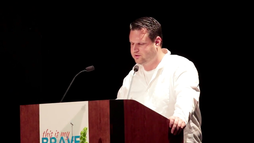 I was 12 the first time I contemplated suicide. I should have been thinking about boys and what color nail polish looked best. Instead I was trying to decide if taking a bunch of pills was the way to go, or if slitting my wrists was better. My parents didn’t know. I never told anyone. There was a lot of drama in our home at the time. I’m not really sure what it was all about, but my parents fought. A lot. And I felt lonely, and afraid and trapped in darkness. I just wanted it to end. If I had been able to figure out a fool-proof method, I wouldn’t be here telling my story. But I didn’t figure it out and I am here. And I want to share my story with you. Because it’s important. I’m not sure how I coped for all those years. Life was chaotic and miserable. I remember spending a whole day lying on the couch, facing the wall and crying. There were big, blow-up fights with family members. Confusion, fear and depression were daily companions. I remember the feeling of standing outside myself, watching myself yell and scream. I knew it was wrong. I knew I needed to stop, but I couldn’t. I literally could not stop myself. It was terrifying. These episodes would be followed by a depression so deep I didn’t know if I’d ever find my way out. Sometimes I’d feel sure it would never end. That’s when the desire for the pain to stop grew so strong, I’d think about killing myself. After 5 particularly difficult years, where I lost my mother, my aunt, my grandmother and my marriage, I became so depressed I was hurting myself and planning my suicide. Desperate, I took myself to the ER and was checked into the behavioral health unit of the local hospital. But it wasn’t until my second trip to the hospital that I was finally diagnosed as Bipolar. I was 42 years old. No one should have to suffer that long. But in my family, mental illness was not allowed. It meant you were weak. So I suffered in silence, trying to be strong. Until I just couldn’t do it anymore. People wonder what it is like to be bipolar. Its like being hijacked by a tornado. Imagine you are walking down the street. You have a destination in mind, you have things to do, you have a plan. Then a tornado comes roaring down the street and surrounds you. You try to keep moving forward but the winds are blowing you sideways and backwards. Things keep rushing past your face, things you need. You reach for them, but they are gone before you can wrap your fingers around them. People are outside the tornado. They are yelling at you. Some are giving orders, others advice, but you can’t really hear what they are saying and couldn’t follow directions even if you did. You might be giddy with excitement or angry at the interruption. That’s mania. Then there is the other side, where you are weighed down with 2000 lbs of chain, where everything is gloomy and grey, like looking through a fog at night. Your body can barely move, your mind is encased in jello. People tell you to shake it off, to get up and do something. But the chains are so heavy you can barely walk and your mind just won’t function. You have so much to be thankful for, they say. But you can’t remember what. That’s depression. It took me a few years to really figure out a wellness plan that worked for me, but now I am fairly stable. I still have episodes, but I am better able to manage them and get them under control before they do any real damage. If there wasn’t so much stigma attached to mental illness, if I’d been more aware of the signs and symptoms, maybe I wouldn’t have suffered so long. Maybe my kids wouldn’t have memories of a screaming, raging mother, or one who just laid on the couch and cried. Maybe my life would have been a better. It’s time to end the stigma and the prejudice. Mental illness is a physical abnormality in the brain. It is no different than having diabetes or a heart condition. It’s time it was recognized and treated as a real medical condition. It’s time for more research into better treatment options, ones that don’t mask our personalities and stifle our creativity. It’s time for hope. Nicole Mackey 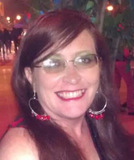 A writer, speaker and mental health advocate, I am also something of a gypsy. I have spent most of my life moving around the country, from Michigan to Florida to Maine and now Phoenix, AZ. I even spent a year living in a tent. When I am not writing, I like to knit, crochet, bake and color. Most days you can find me at home, computer on my lap and a far away look in my eye. Connect With Nicole Website: www.nicolemackey.com Twitter: @ladyhawke70x7 Facebook: www.facebook.com/ladyhawke70x7 |
Listen To The ConquerWorry™ PodcastArchives
March 2016
Categories
All
|

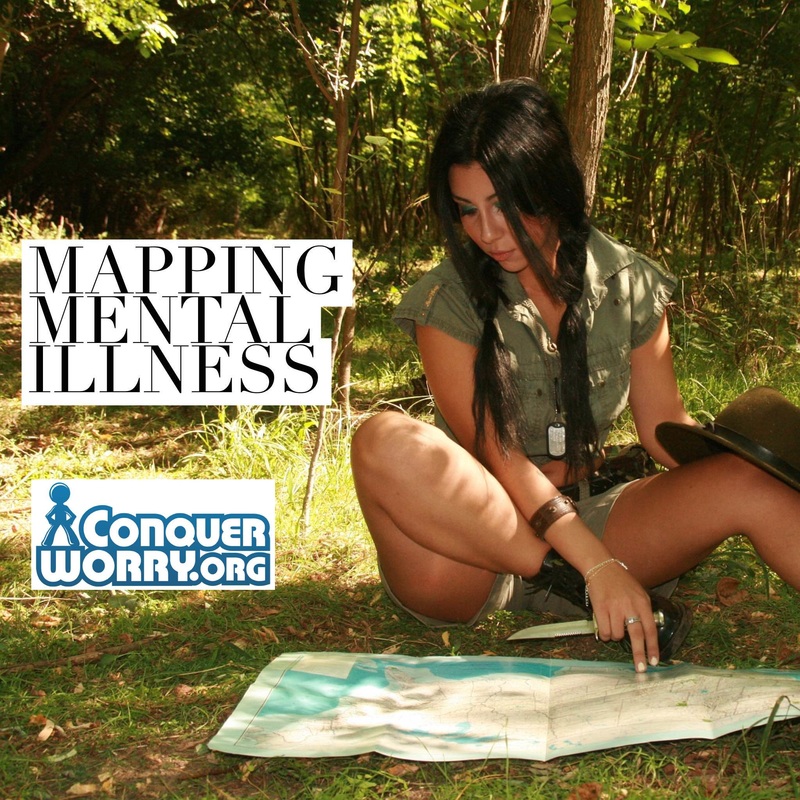
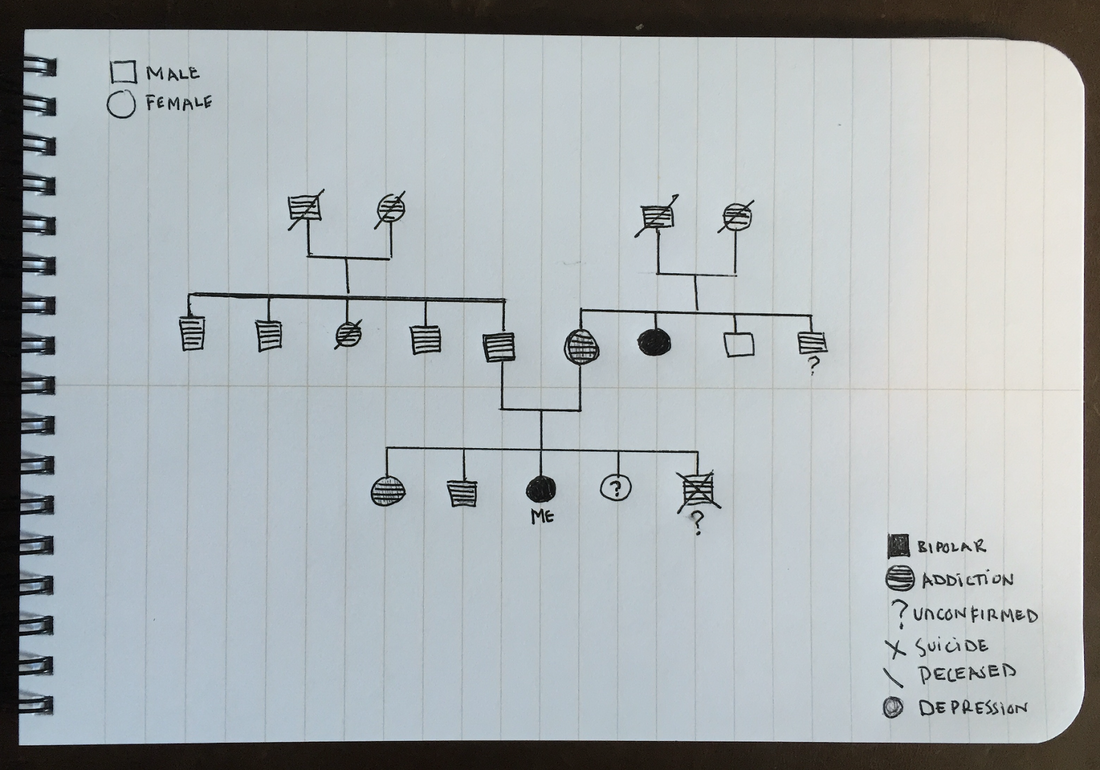
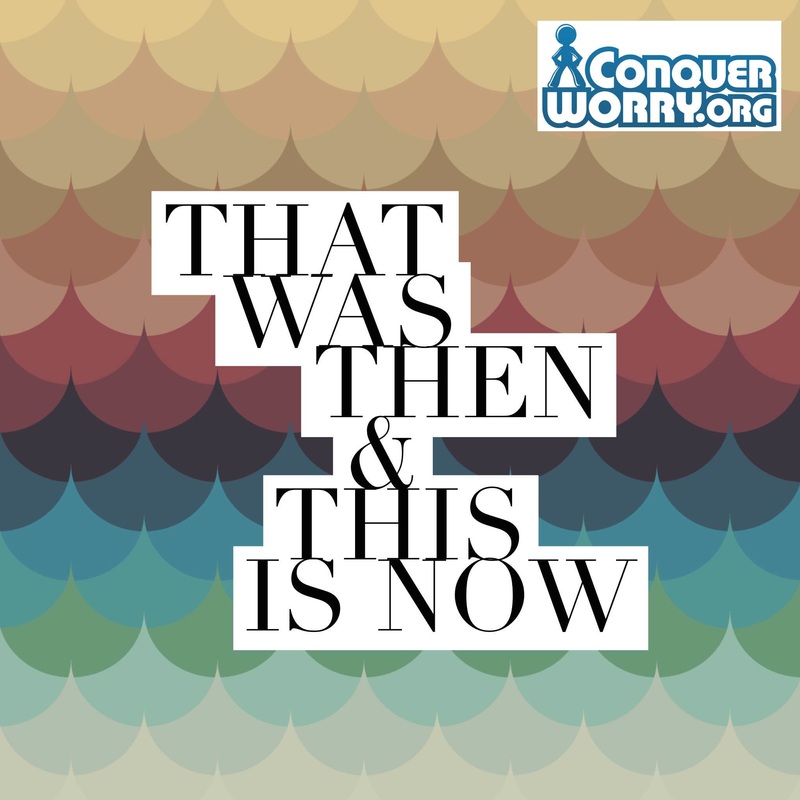
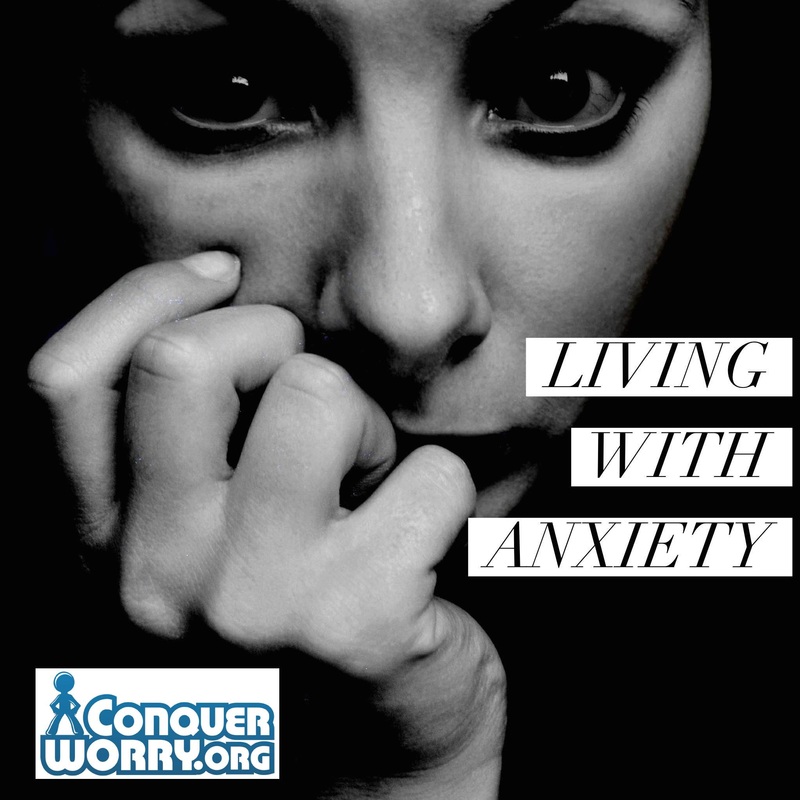
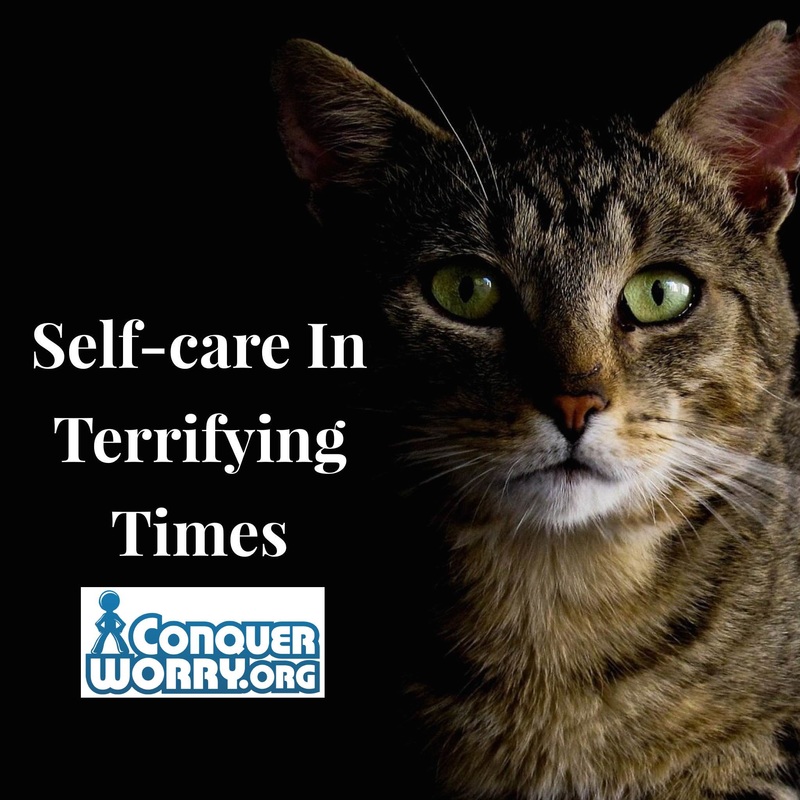
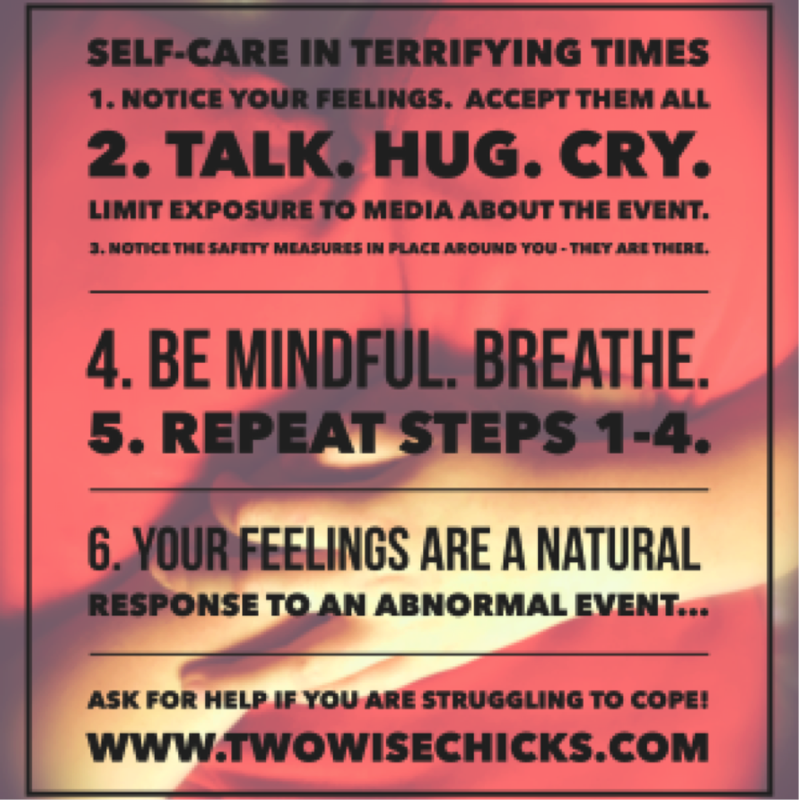
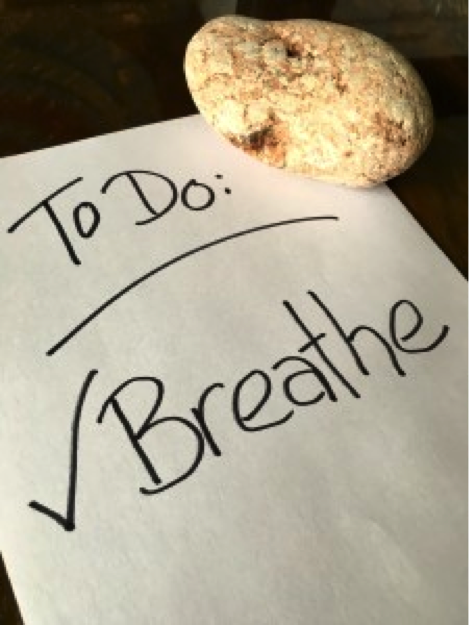
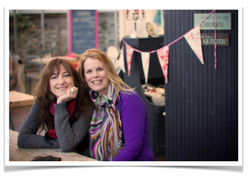
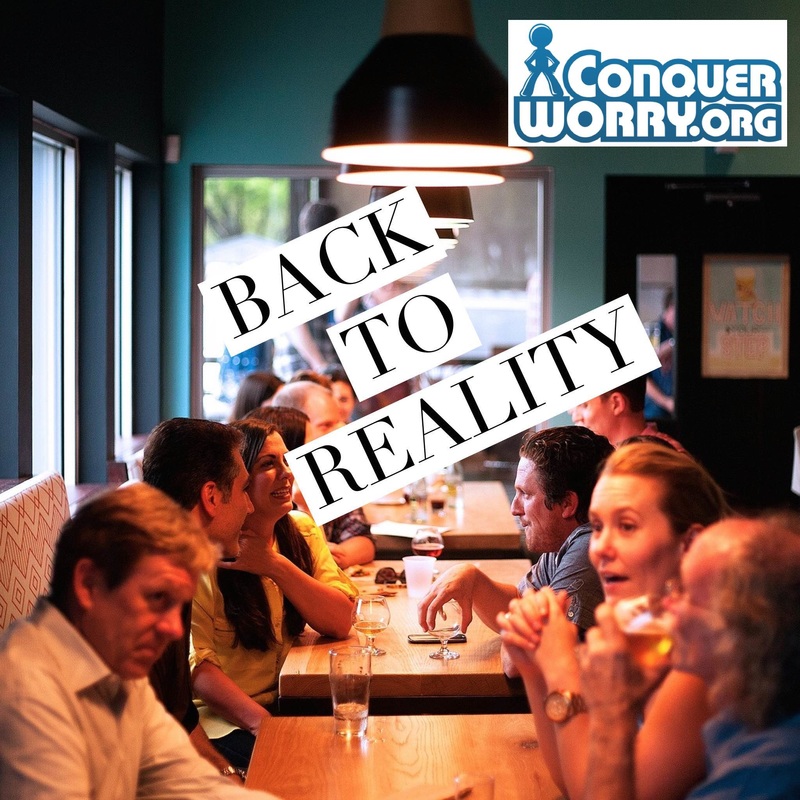
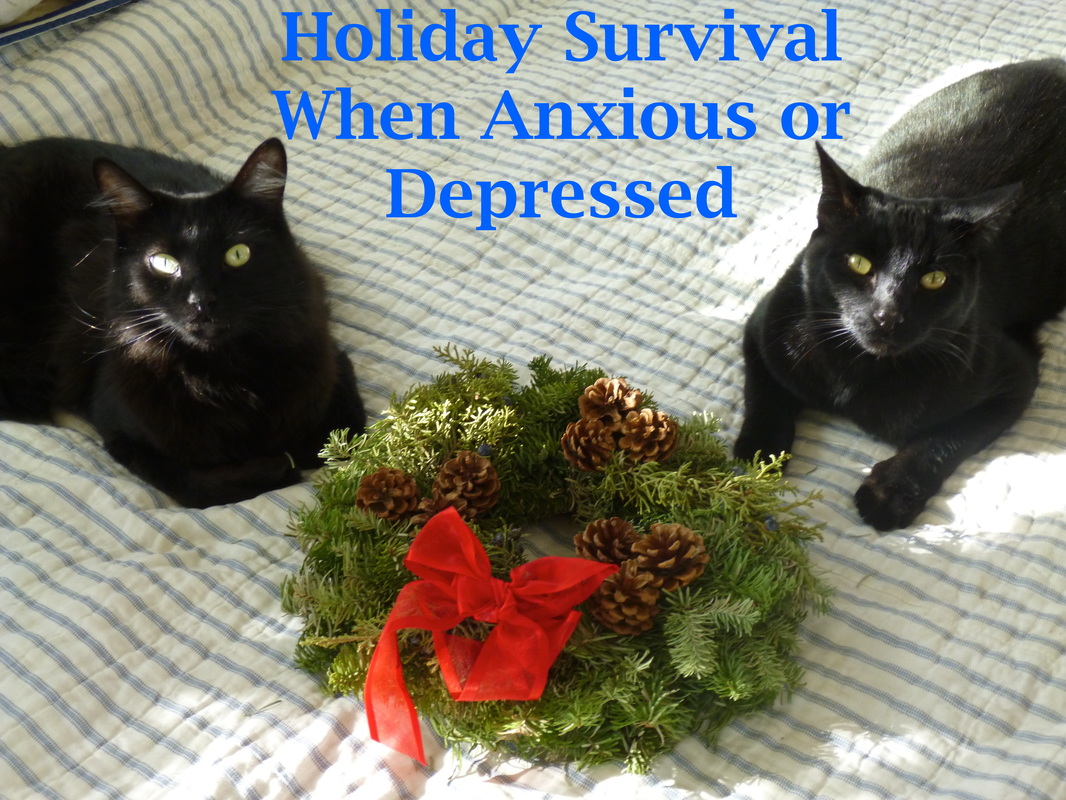
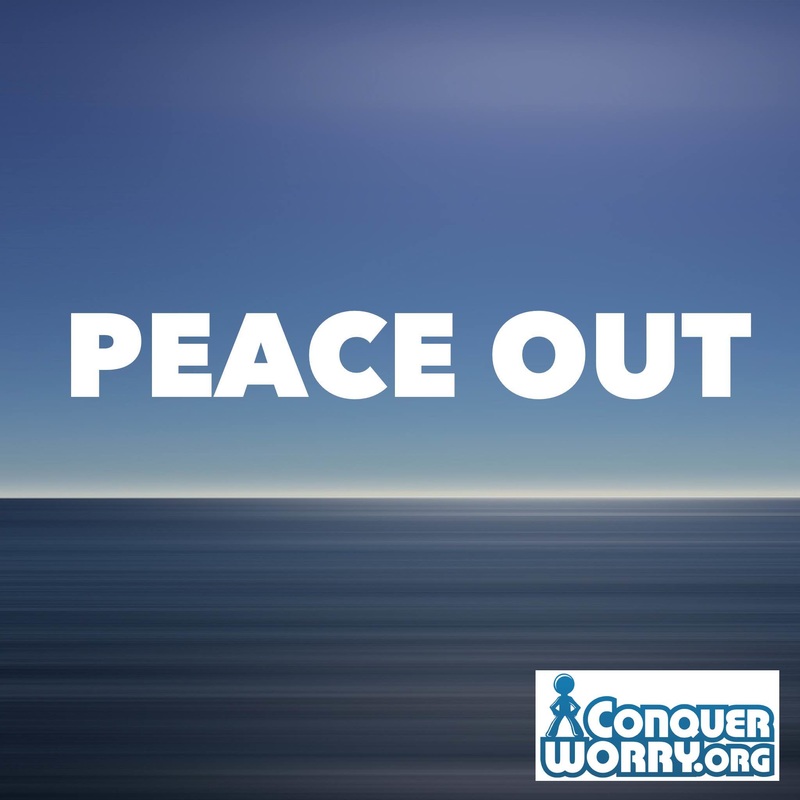

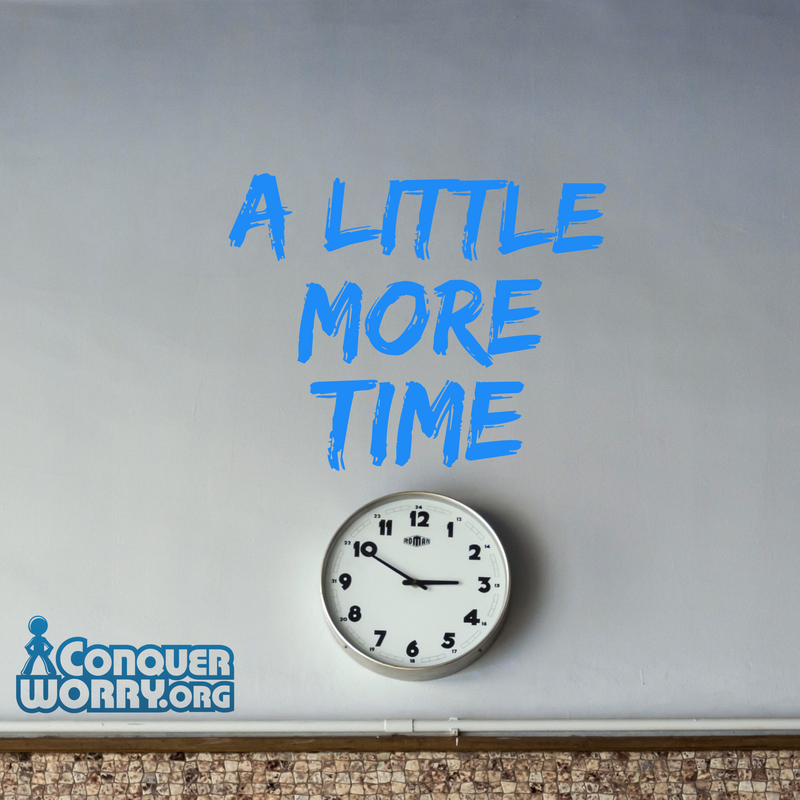
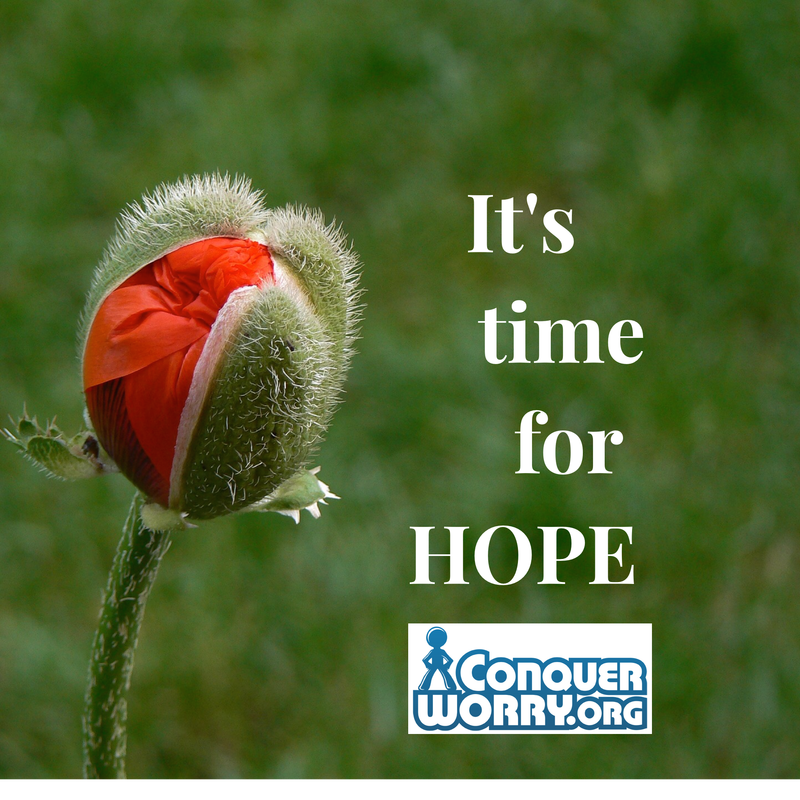
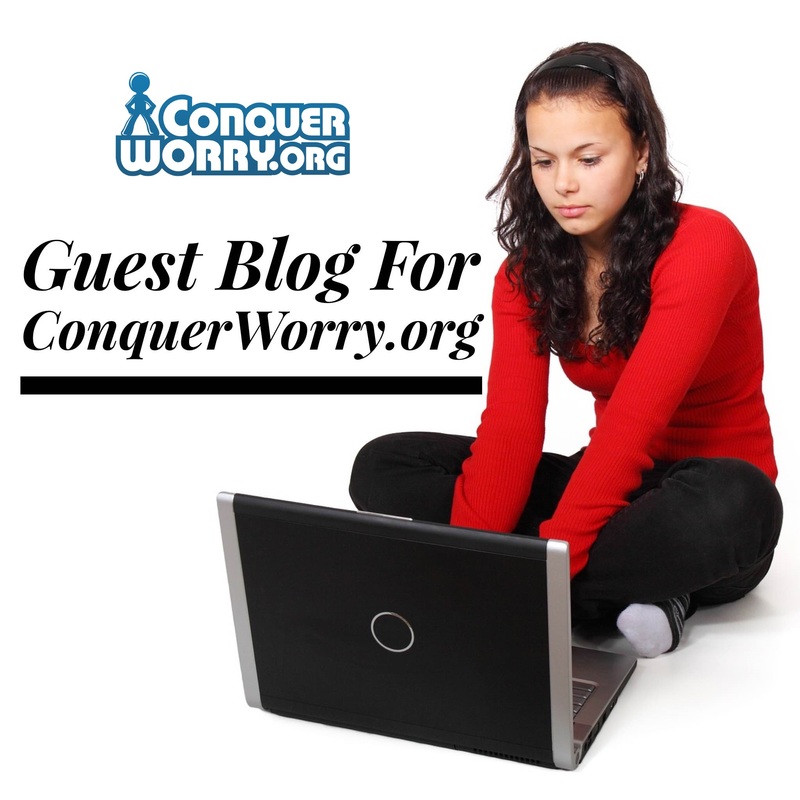
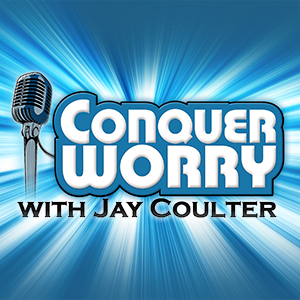
 RSS Feed
RSS Feed